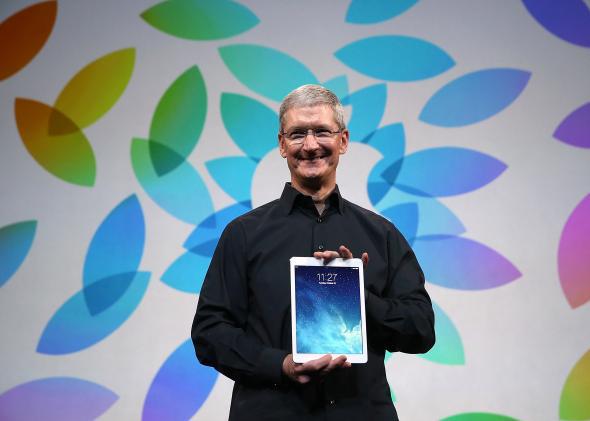Walter Isaacson’s remarks on Google vs. Apple as innovative companies strikes me mostly as a case study in the perils of overusing the phrase “disruption”:
Isaacson also pointed out that Nest co-founder and CEO Tony Fadell will be joining Google as part of this deal. “Fadell was one of the team that created the iPod. He was very deep into the Apple culture … when Apple was so innovative.”
To play catch-up, Cook has to think about what industry he wants to disrupt next, Isaacson said. “I think Steve Jobs would have wanted as the next disruptive thing to either have wearable-like watches or TV, an easy TV that you can walk into the room and say put on ‘Squawk Box’ … or disrupt the digital camera industry or disrupt textbooks.”
To repeat myself, the idea of disruptive innovations is a valuable one but excessively tossing around of the word “disrupt” can get people confused. Think about Tony Fadell and Steve Jobs and the iPod and what really happened here. Basically, MP3s already existed and MP3 players also already existed. But not very many people bought MP3 players. Until, that is, Jobs and Fadell designed a line of MP3 players that people liked much better than the existing MP3 players. Then people bought lots of them. This is really a much simpler kind of story than the stories Clayton Christensen tells about disruptive innovation.
You see a category of products that seems like a good idea—it’s like a Walkman but for MP3s, it’s like a cellphone that’s also a PDA—but nobody has actually executed well and then you execute it well.
That’s been Apple’s calling card and it’s just a different kind of thing. Right now there’s a lot of buzz about wearables. Smart watches or smart glasses or whatever. People are intrigued by the idea. But while there are a lot of good ideas in this space, there haven’t yet been any great products. But if Apple did come out with a great pair of smart glasses next year, you’d hardly say they were “disrupting wearable computing”—there’s no market for wearable computing devices that’s worth disrupting because all the products on the market currently suck. For a company that’s all about great execution, that’s what you’d be looking for. Take something that’s too janky on the cutting edge right now and make it workable for everyone. Leave the disrupting to someone else.
